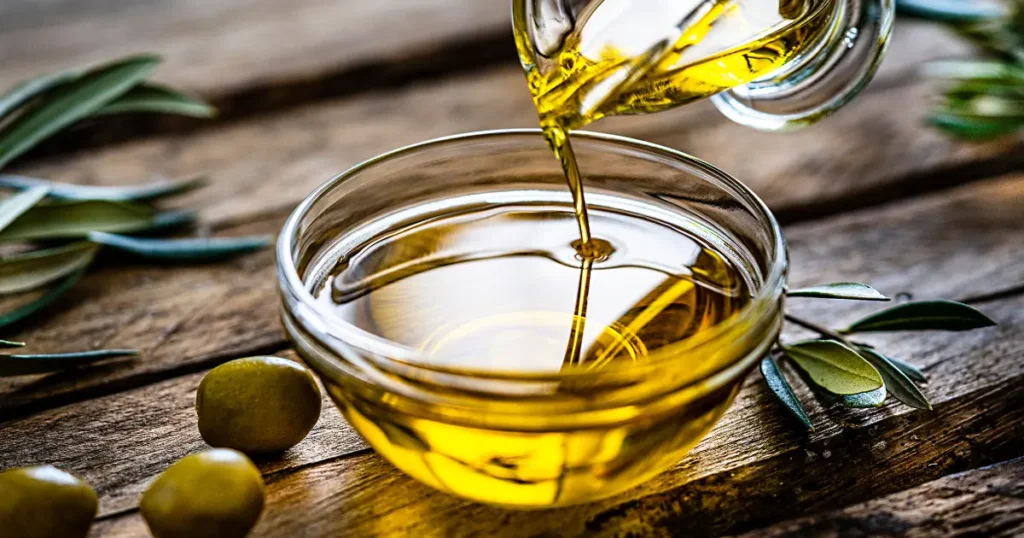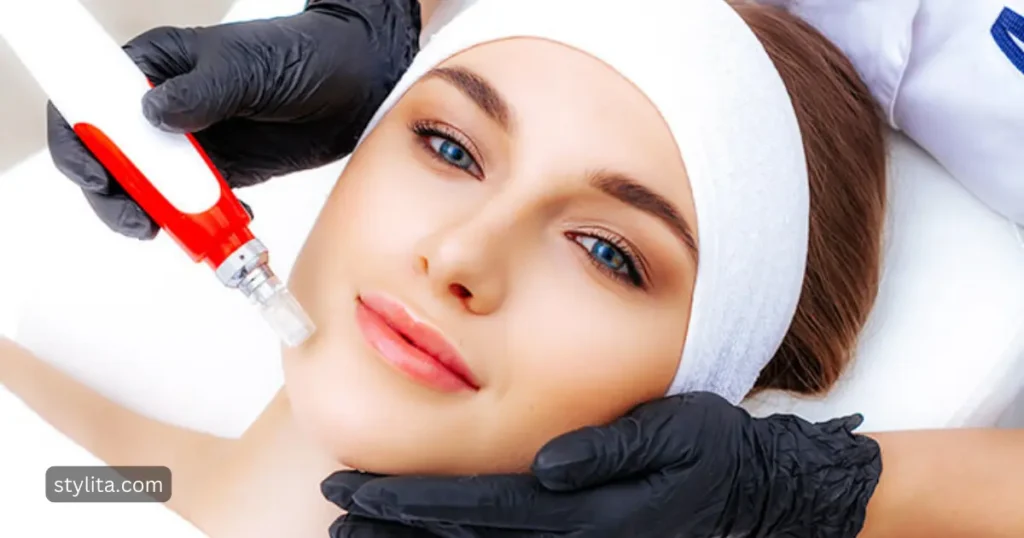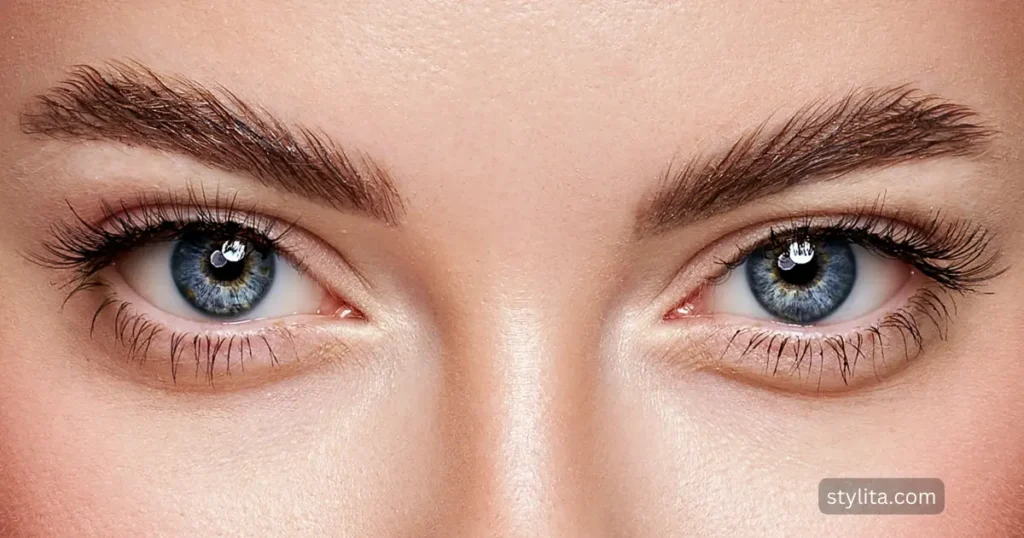With all the buzz about the health benefits of olive oil, you might be curious if it can also work wonders for your hair and promote hair growth. Well, it’s got quite a few beneficial properties, you know. It’s got antioxidants, anti-inflammatory stuff, and antimicrobial agents. It’s not difficult to imagine that it could also be beneficial for your hair loss. Unfortunately, there isn’t much evidence, like we have for Clove Water, to suggest that olive oil can do more for your hair than just moisturize and nourish it. Human trials have not supported the idea that olive oil can stimulate hair growth or prevent alopecia-induced hair thinning. Actually, if you apply it to oily hair, it could potentially clog your pores and lead to scalp issues like acne or folliculitis.
Table of Contents
About Olive Oil
Many people use olive oil for cooking, as it has become a common ingredient in households and a staple of the Mediterranean diet. Regular olive oil and extra virgin olive oil are the two main varieties of olive oil extracted from olives in different ways. The extra virgin variety undergoes minimal processing and cold pressing, whereas the regular variety undergoes heating and refining. This heating and refining process can reduce the amount of vitamins, nutrients, and antioxidants in the regular variety.
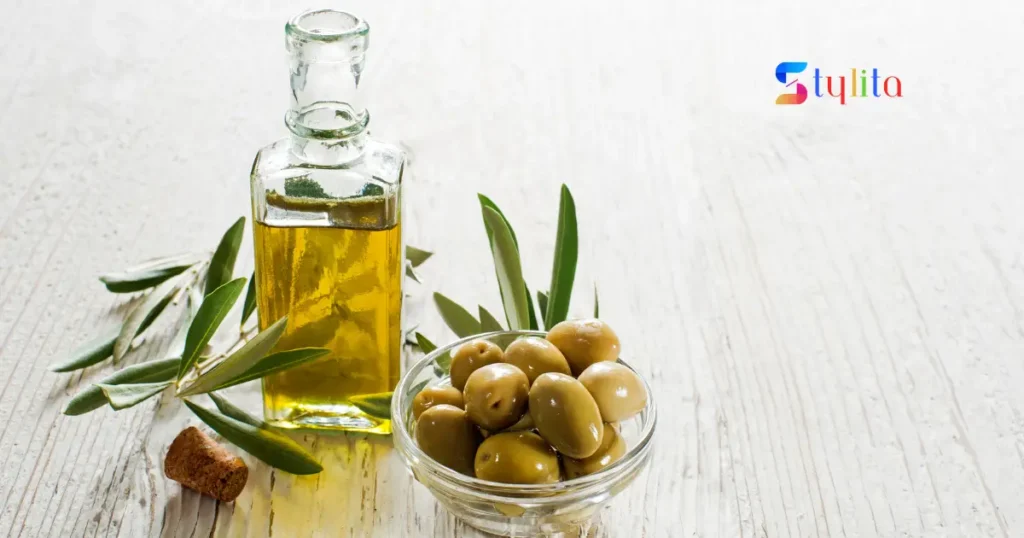
Olive oil is well-known for its natural antioxidant, anti-inflammatory, and antimicrobial properties. It has been proven to offer numerous health benefits, although the concentration of these agents may differ among different oil blends.
- It is possible that it can help reduce the risk of certain types of cancer.
- It can regulate cholesterol levels; reducing blood pressure and promoting blood circulation; and preventing osteoporosis.
- It can enhance digestion and reduce the risk of developing gallstones.
- It may potentially assist in reducing age-related cognitive decline.
What does olive oil contain
Triglycerides and fatty acids, a type of fat that the human body can convert into energy, typically make up olive oil. Additionally, it contains other components like phenols, beta-carotene, and lutein, all of which have demonstrated positive health effects.
Composition of Extra Virgin Olive Oil
Triglycerides, which make up about 98–99% of extra virgin olive oil’s composition constitute Oleic acid, Linoleic acid, Alpha-linolenic acid. Other elements that constitute a small percentage (1-2%) are Phenols, Beta-Carotene and Lutein.
Does olive oil promote hair growth
There haven’t been any human clinical trials conducted yet to show the effects of olive oil on hair growth or preventing hair loss. There is only one small study conducted on mice that suggests a possible role of topical oleuropein, a substance commonly found in olives and olive leaves, in regulating the hair growth cycle. The study showed increased hair growth in mice after treatment. On the other hand, there are a few factors that might limit the applicability of the study’s findings to humans:
- It’s worth noting that the levels of oleuropein in olive oil are not as high as those found in olives or olive leaves.
- The skin and hair of mice are distinct from those of humans.
- The scalp may need some time to naturally absorb enough oleuropein from topically applied olive oil.
- Therefore, due to its abundance of fatty acids, olive oil’s only known method of helping with hair thinning is by moisturizing it and preventing breakage.
Additional benefits of using olive oil for hair and scalp
Although there is currently no scientific evidence to support the idea that olive oil promotes hair growth, it does possess certain properties that could potentially benefit your hair and scalp. However, further research is necessary to identify the specific conditions under which these methods can be effective.
Properties with antioxidant effects
Spending too much time in the sun can actually be harmful to your hair and scalp because of the UV radiation. Olive oil has natural antioxidants that can potentially reduce oxidative stress and protect your hair from UV damage. It may also offer some protection against skin cancer on the scalp.
Despite the lack of human clinical studies, a study on mice demonstrated a decrease in skin tumor development upon topically applying olive oil after UV radiation exposure. However, applying olive oil as a preventive measure prior to exposure did not yield the same results.
Properties that help reduce inflammation
Did you know that olive oil has these amazing phenols that have anti-inflammatory qualities? It’s pretty cool because, when you consume olive oil, it can actually help reduce inflammation in your body.
There hasn’t been any solid evidence yet to suggest that it can have the same effect when applied topically. Additional research is necessary to determine if it can provide relief for inflammation, irritation, or tenderness on your scalp.
Properties with the ability to fight against microorganisms
Olive oil has shown some antimicrobial qualities in laboratory studies, including its ability to fight against fungal infections. A study demonstrated its effectiveness against candida, leading to a 50% reduction.
There is a possibility that it could be beneficial in preventing or treating yeast infections on the scalp, like dandruff or seborrheic dermatitis. However, further research is required to determine its effectiveness in combating the fungus responsible for these conditions when applied to the human scalp.
It’s worth noting that some medical professionals have raised concerns about olive oil potentially worsening dandruff and seborrheic dermatitis by providing nourishment to the yeast responsible for these conditions.
Properties that moisturize and soften
Olive oil contains plenty of fatty acids that work as excellent emollients. They have the ability to soften and moisturize both your hair and scalp. Additionally, these fatty acids form a protective layer around your strands, shielding them from friction-induced damage like breaking or splitting ends. In addition, it has the ability to seal the hair cuticle, which helps to retain moisture for a longer period of time.
possible side effects of olive oil
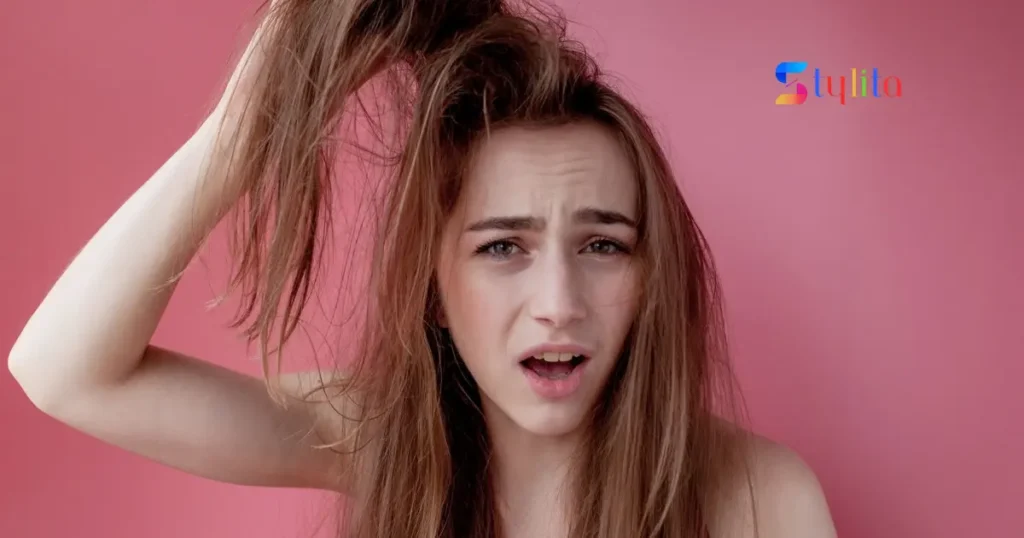
Using olive oil is perfectly safe for human consumption, whether you’re ingesting it or applying it topically to your scalp and hair. It doesn’t typically cause any irritation or harm to your skin. Allergic reactions to it are usually uncommon and not severe.
Using too much olive oil on your scalp and hair can make them greasy and clog your pores, potentially causing scalp acne or folliculitis. If you already have greasy hair, it’s a good idea to steer clear of this type of oil. Remember to rinse your scalp thoroughly with shampoo after applying olive oil to your hair.
how to use olive oil for hair
You have a variety of options when it comes to utilizing olive oil for your hair. Although there is no scientific evidence supporting their ability to promote hair growth, these products can effectively nourish, hydrate, and improve the condition of your hair, particularly if it is dry and brittle.
Just pour a few drops of olive oil into your hands and give your scalp a nice, gentle massage. Use a fine-toothed comb to distribute the oil evenly throughout the entire length of your hair. Just a heads up: If the oil might leave stains on your clothes or furniture if it comes into contact with them.
You can mix the olive oil with other essential oils, like a great rosemary blend for hair growth or peppermint oil for hair growth. Just apply the mixture to your hair and let it sit for about 30 minutes before rinsing it off.
It’s best to apply olive oil specifically to your split ends, making sure to avoid the scalp and the rest of your hair. By following this method, you can extend the duration of the oil on your hair and avoid excessive greasiness on your scalp. Just grab a comb and gently spread the oil through your hair. Apply the oil for as long as you deem necessary before rinsing it out.
Is it okay to put olive oil directly on your hair
Yes, you can totally use olive oil on your hair without having to dilute it beforehand. It’s unlikely to cause any irritation or burns on your scalp. Actually, olive oil can also serve as a carrier oil, allowing you to dilute other essential oils.
how long do you usually leave olive oil in your hair
Depending on your hair type, you should typically leave olive oil on your scalp for 15–30 minutes. If your hair is thicker and drier, you can leave it in for a bit longer. If you happen to have dry hair or damaged strands, you could even leave the treatment on overnight. Just remember to thoroughly wash it out in the morning to prevent any greasy buildup.
Exploring different options for hair growth oils
If you’re looking to address hair thinning, here are a few essential oils known for promoting hair growth that you might want to consider:
- Studies have shown that rosemary oil, a natural DHT blocker, is just as effective as minoxidil in promoting hair growth and reducing hair loss in androgenetic alopecia.
- There have been some clinical trials that suggest pumpkin seed oil may be effective in treating male and female pattern baldness. However, further research is necessary to fully validate these findings.
- Did you know that peppermint oil has been studied in animals and has some potential for promoting hair growth? Pretty interesting, right? In addition, the menthol in it helps to improve blood circulation to your hair follicles and provides relief for scalp irritation.
- Did you know that black seed oil can actually help with hair thinning? Researchers have found that black seed oil effectively reduces telogen effluvium-induced hair loss and even helps regulate the hair growth cycle.
- Studies have explored the potential effects of lavender oil on hair growth. Although animal studies have yielded promising results, human confirmation of these findings remains necessary. In addition, it has the ability to calm scalp irritation, itching, and inflammation, as well as alleviate stress and anxiety that may contribute to hair loss.
- Treatment options for promoting hair growth based on scientific evidence
- If you’re in search of hair growth treatments, it’s likely that you’re dealing with hair shedding or hair loss. If that’s the case, it would be a good idea to schedule a consultation with a trichologist when you start noticing the initial signs of hair thinning and balding. They can provide you with the most effective treatment options.
- During the examination, the experts will carefully assess your scalp and hair to determine the cause of your hair loss. Based on their diagnosis, they will suggest the most suitable medications and therapies to address your specific condition. Here are some of the most common and effective options:
- Typically, topically applied minoxidil widens the blood vessels in the scalp, improving nutrient delivery to the hair follicles and promoting nourishment.
Male-pattern baldness often receives recommendations for finasteride as a treatment. It works by inhibiting the production of dihydrotestosterone (DHT), a hormone that binds to receptors in the hair follicles, causing them to shrink and preventing hair growth. However, women who haven’t reached menopause typically don’t recommend it. - Doctors frequently prescribe steroid creams to treat autoimmune conditions like alopecia areata or scalp psoriasis.
- Using dermarolling for hair growth involves utilizing a special tool to create micro-punctures on your scalp, which then activate your body’s natural healing response. It can also enhance the effectiveness of hair growth medications, like topical Minoxidil.
- Red-light therapy can be a great option for promoting hair growth. By using focused red light at specific frequencies, this treatment helps boost cell metabolism and provide more energy to your hair follicles.
- A hair transplant is a straightforward and effective procedure that involves taking hair follicles from a healthy area of your scalp and transplanting them into an area where your hair is thinning.
- Every year, an increasing number of individuals are choosing hair restoration surgery. This is due to the remarkable advancements in surgical techniques, which have made it possible to achieve a hair transplant that looks completely natural. Whether you opt for a FUE or FUT procedure, you can now confidently expect excellent results. In addition, a hair transplant offers a permanent solution, unlike medication that requires ongoing use.

